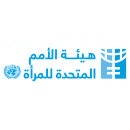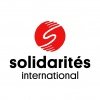One-Stop-Center Capacity Building Consultant
Background/Context:
UN Women (UNW), grounded in the vision of equality enshrined in the Charter of the United Nations, works for the elimination of discrimination against women and girls; the empowerment of women; and the achievement of equality between women and men as partners and beneficiaries of development, human rights, humanitarian action and peace and security. Placing women’s rights at the centre of all its efforts, the UN Women leads and coordinates the United Nations system efforts to ensure that commitments on gender equality and gender mainstreaming translate into action throughout the world. It provides strong and coherent leadership in support of Member States’ priorities and efforts, building effective partnerships with civil society and other relevant actors.
UN Women’s triple mandate, along with its global network and deep policy and programming expertise, continues to endow the Entity with a unique capacity to: (i) support Member States to strengthen global norms and standards for gender equality and women’s empowerment, and mainstream gender perspectives in other thematic areas; (ii) promote coordination and coherence across the UN system to enhance accountability and results for gender equality and women’s empowerment; and (iii) undertake operational activities to support Member States, upon their request, in translating global norms and standards into legislation, policies and strategies at country level.
UN Women plays an innovative and catalytic role in the State of Palestine since its inception in 1997 (as UNIFEM). In line with the national priorities, the work of UN Women for the period 2023-2025 is aligned with three of the Palestine United Nations Sustainable Development Cooperation Framework’s (UNSDCF) outcomes:
- Palestinians have greater access to economic opportunities that are inclusive, resilient, and sustainable, including decent employment and livelihoods opportunities in an empowered private sector.
- Palestinians, including the most vulnerable, have equal access to sustainable, inclusive, gender responsive and quality social services, social protection, and affordable utilities.
- Palestinian governance institutions, processes, and mechanisms at all levels are more democratic, rights-based, inclusive, and accountable.
Its three-year Strategic Note supports the efforts to achieve measurable results in country in terms of four UN Women global Strategic Plan impacts (2022-2025): (SP Impact 1). Governance and participation in public life; (SP Impact 2). Women’s Economic Empowerment; (SP Impact 3). Ending Violence Against Women and Girls and; SP Impact 4. Women peace and security, Humanitarian & Disaster Risk Reduction.
In line with the Palestinian Government’s commitment to achieve gender equality and combat Violence Against Women (VAW), and in full partnership with the Justice, Security and Social Sectors, UN Women within its joint programme with UNDP and UNICEF- “ Reinforcing equal access to justice for all Palestinians - SAWASYA III” is supporting the Justice, Security and Social institutions to mainstream gender into their plans, procedures and policies, and develop and provide gender responsive services to women victims and survivors of violence. Within this framework, UN Women is providing technical support to the Ministry of Justice (MoJ), High Judicial Council (HJC), Palestinian civil police (PCP) and the Attorney General Office (AGO) to mainstream gender into their policies, plans, procedures and practices.
As the first line responders, the Family and Juvenile Protection Department (FJPD) manages complex and delicate interventions including: responding to incidents of violence; supporting victims in filing out complaints; ensuring their protection and access to justice; collecting evidence and supporting appropriate investigations to ensure perpetrators are held accountable.
UN Women within Sawasya II programme has supported the PCP to upgrade and strengthen the quality of services provided to women victims and survivors of violence. This was achieved through different tools and interventions, including the establishment of the One Stop Centers (OSCs) in three governorates in the West Bank, including Ramallah in 2017 and Hebron and Nablus in 2022. The main goal behind this support is to enhance the protection and access to justice for women and children victims and survivors of violence, through providing them with multi- sectoral services under one roof, including protection, policing, psycho- social support, prosecutorial services, and forensic medicine services through collaboration with actors from the MoSD, the PP, the MoH, CSOs and others as needed. In line with this, UN Women has supported strengthening the capacity of the PCP, particularly the FJPUs and OSCs staff through different interventions, including amongst others conducting needs assessment; providing capacity building interventions, and developing a protocol to guide and instruct the case management and the referral processes.
Against this backdrop, UN Women Sawasya III programme plans to recruit a national consultant to support the FJPD to improve its management of the OSCs.
The assignment includes the following main objectives:
- To assess the performance of the three OSCs from gender and child justice perspectives. This will be achieved by producing an analytical report that captures the lessons learned, best practices, gaps, challenges and opportunities. The report should also include a set of actionable recommendations to improve the quality of services; address the challenges and gaps; and seize opportunities.
- To strengthen the capacity of the OSCs management by providing technical support based on observation and analysis of strengths and weaknesses/challenges.
The consultant will be reporting to UN Women Sawasya Programme Specialist and will be supported by the Women’s Security Analyst, the focal point at PCP’s FPJD, and the Finance Associate who will be the point of contact on the contract and payment issues.
Description of Responsibilities/ Scope of Work
Inception phase:
- To develop an inception report that includes a detailed description of the work plan, the methodology, the deliverable and the timeframe and share it with UN Women for review and approval.
- To meet with UN Women’s technical team and the PCP’s focal points to discuss the assignment’s objectives, the methods and tools that will be used, and the main deliverables.
Implementation phase:
- Developing an analytical report to assess the performance of the OSCs:
- To conduct a desk review on relevant national, regional and international references including the OSC protocol that has been developed previously.
- To conduct field visits to the three OCS in Ramallah, Hebron and Nablus to monitor the provision of protection and referral services provided to women and children victims and survivors of violence, and collect data and observations on the applied practices; the level of privacy and confidentiality measures; the safety of women and children victims and survivors of violence, and the level of coordination between service providers. .
- To facilitate group discussion meetings between the FJPD and other relevant actors in the justice and social sectors.
- To consult with women, children, and civil society organizations to learn about their expectations and experience with the OSCs.
- To identify challenges and gaps in the services provision including in terms of managing the relations with service providers at the OSCs and propose recommendations to overcome these challenges.
- To develop an analytical report that provides a thorough description of the existing gaps; challenges; good practices, and opportunities, in addition to a set of actionable recommendations to improve the efficiency and effectiveness of the OSCs.
- Providing technical support to build the capacity of the OSCs:
- To work closely with the FJPD relevant staff members and ensure active engagement of the field/ frontline officers at the OSCs in Nablus, Hebron and Ramallah.
- To provide technical support to the OSCs and FPJD management teams to improve their management capacity, including in developing a plan to enhance the performance of the OSC’s model.
- To ensure a participatory approach and ownership during all phases of the consultancy work.
Final report:
- To submit a final narrative report that includes a description of the assignment, the achievements, used methodology, lessons learned and recommendations for future interventions. Annexes should include a list of interviewed people, utilized methodology and others.
Deliverables
Deliverable
Expected completion time (due day)
An approved inception report that includes a detailed work plan, including the objectives, the methodology, deliverables and timeframe.
10 Days from the signature of the contract
-An approved analytical report that describes the OSCs functioning situation including challenges, best practices, opportunities and recommendations.
-An approved plan for improving the OSCs’ performance- in addition to a brief report on the technical support provided to the OSCs’ Team.
3 months from the signature of the contract
An approved final report that includes a description of methodology used, findings and recommendations.
A week before the end of the contract
Consultant’s Workplace and Official Travel
This is a Hybrid consultancy – home based with frequent visits to the One-Stop-Centers in Ramallah, Nablus and Hebron of which 15 days at least working from the mentioned OSCs.
جميع الحقوق محفوظة لموقع جوبس.
Competencies:
Core Values:
- Respect for Diversity
- Integrity
- Professionalism
Core Competencies:
- Awareness and Sensitivity Regarding Gender Issues
- Accountability
- Creative Problem Solving
- Effective Communication
- Inclusive Collaboration
- Stakeholder Engagement
- Leading by Example
Please visit this link for more information on UN Women’s Core Values and Competencies:
https://www.unwomen.org/en/about-us/employment/application-process#_Values
FUNCTIONAL COMPETENCIES:
- Sound knowledge of international standards on human rights, gender justice and women rights.
- Proven Experience in the field of protection and access to justice and security.
- Strong capacity to establish, build and sustain effective relationships with clients, demonstrating understanding of client’s perspective; anticipates client needs and addresses them promptly.
- Strong ability to effectively interact with technical and non- technical end users in a cooperative and helpful manner.
Required Qualifications:
Education and Certification:
- A Master degree (BA and 2 additional years’ experience in lieu of MA degree) in social science, development, human rights, criminology, sociology or related discipline. (10 points)
Experience:
- A minimum of 2years of professional experience in gender justice, VAW and protection, including providing services for women victims of violence, and child justice. (25 points)
- At least 2 years experience in quantitative and qualitative data collection and analysis. (10 points)
- At least 2 previous assignments related to organizational development and/or evaluation. (25 points)
- Experience with the security and /or justice system is a strong asset. (10 points)
- Experience with the UN system or/and International organizations is an asset. (10 points)
- A sample of a previously developed assessment or evaluation report. (10 points)
Languages:
Fluency in Arabic and professional knowledge in English
How to Apply:
- Personal CV or P11 (P11 can be downloaded from: https://www.unwomen.org/sites/default/files/Headquarters/Attachments/Sections/About%20Us/Employment/UN-Women-P11-Personal-History-Form.doc )
- A cover letter (maximum length: 1 page)
- Managers may ask (ad hoc) for any other materials relevant to pre-assessing the relevance of their experience, such as reports, presentations, publications, campaigns, or other materials.
Link: UN WOMEN Jobs - 116460- One-Stop-Center Capacity Building Consultant (undp.org)










